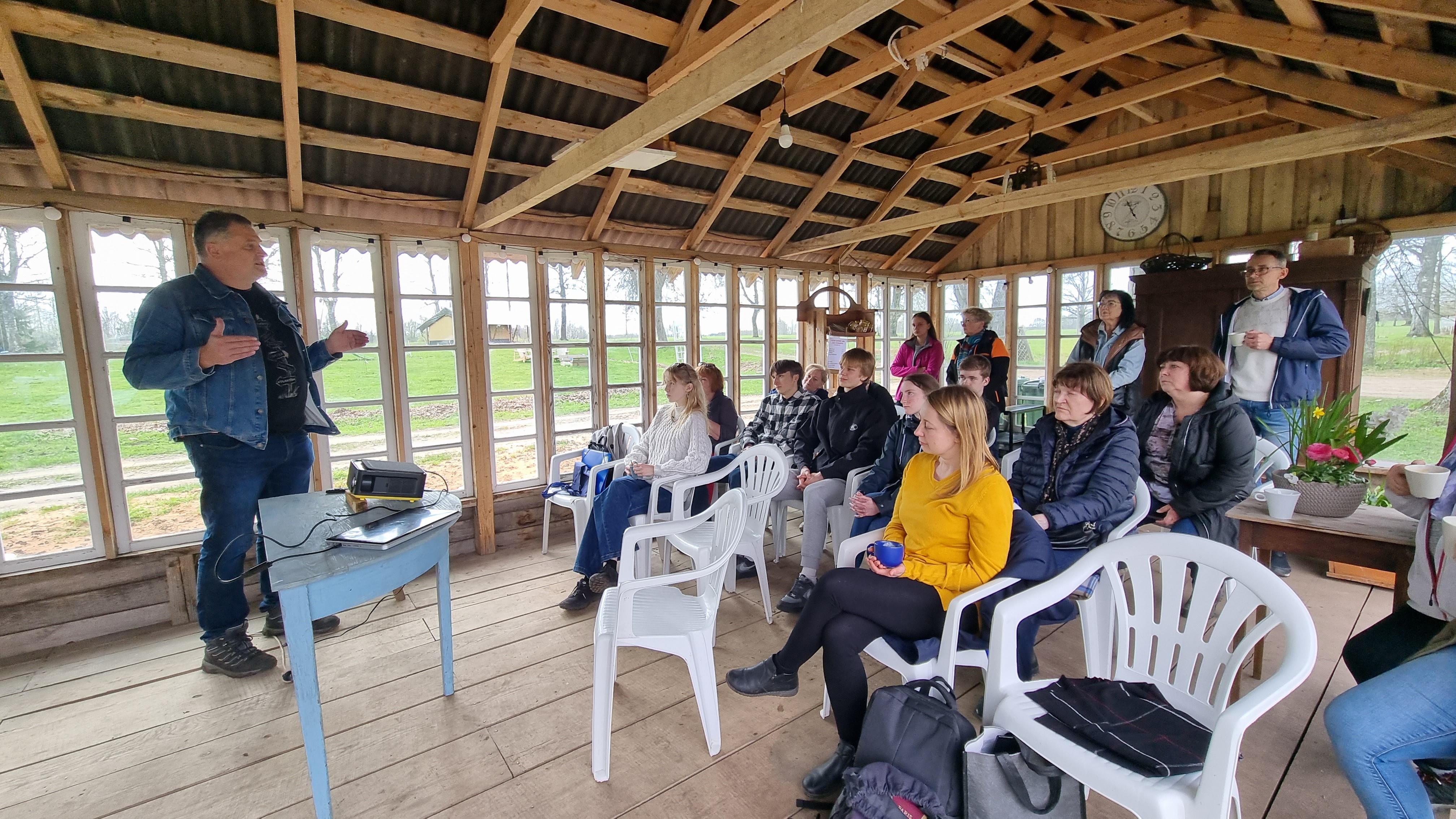
Citizen science and the libraries: the stories of the Valmiera Library, Latvia
Juliette Chalant
July 10, 2024, 7:51 a.m.
As part of the ECS project, 10 public libraries from Public Libraries 2030’s European network are organising citizen science-related events. These events aim to introduce citizen science to a wider public, ultimately broadening and strengthening the European citizen science community.
The spotlight is on the Valmiera Library in Latvia, who has organised several activities and events on citizen science throughout 2024 to popularise citizen science and promote public participation in scientific research. The activities organised include an educational field trip to local natural springs, an initiative to collect place names and stories with teenagers and senior citizens from the region, learning about responsible use of artificial intelligence (AI) tools, and discovering the importance of observing nature. All activities were organised together with experts in the field. The target group of the activities so far have been teenagers and young people, as well as older generations, and anyone interested in the topic.
Educational field trip to local natural springs
On April 27, Valmiera Library organised an educational field trip to local natural springs, accompanied by geographer, book author, lecturer of Vidzeme University of Applied Sciences Jānis Bikše. During the activities, participants learned about citizen science and how ordinary people can take part in extraordinary research.
The trip had three stops: the Pantene Sacred Spring, the Gudzoni Cave Spring and Govs Cave Spring – which can only be reached by knowing the coordinates and being willing to climb the steep bank of Salaca river. During the trip, participants briefly became amateur scientists! Teenagers measured the speed of water in the Pantene spring to be 3 L/s and the water temperature is 6.7°C. From the top of the Skaņaiskalns hill, participants saw the river flowing below, and were treated to a delicious lamb soup for lunch.
“Great atmosphere, good company and a purposeful weekend spent learning more about nature and science!” says Alīna Pūce, Head of Adult Services at the Valmiera Library.
"What I like about citizen science is that anyone can do it and meet like-minded people in the process. It is a good hobby" said one participant afterwards.
During the event, Jānis Bikše told many stories about his everyday life, where science is something he likes doing in his free time. He explained that there are so many things in nature that have yet to be explored. He made science fun!
“This was the first time I heard the term citizen science and it motivated me to find more information about it” wrote one of the teenagers.
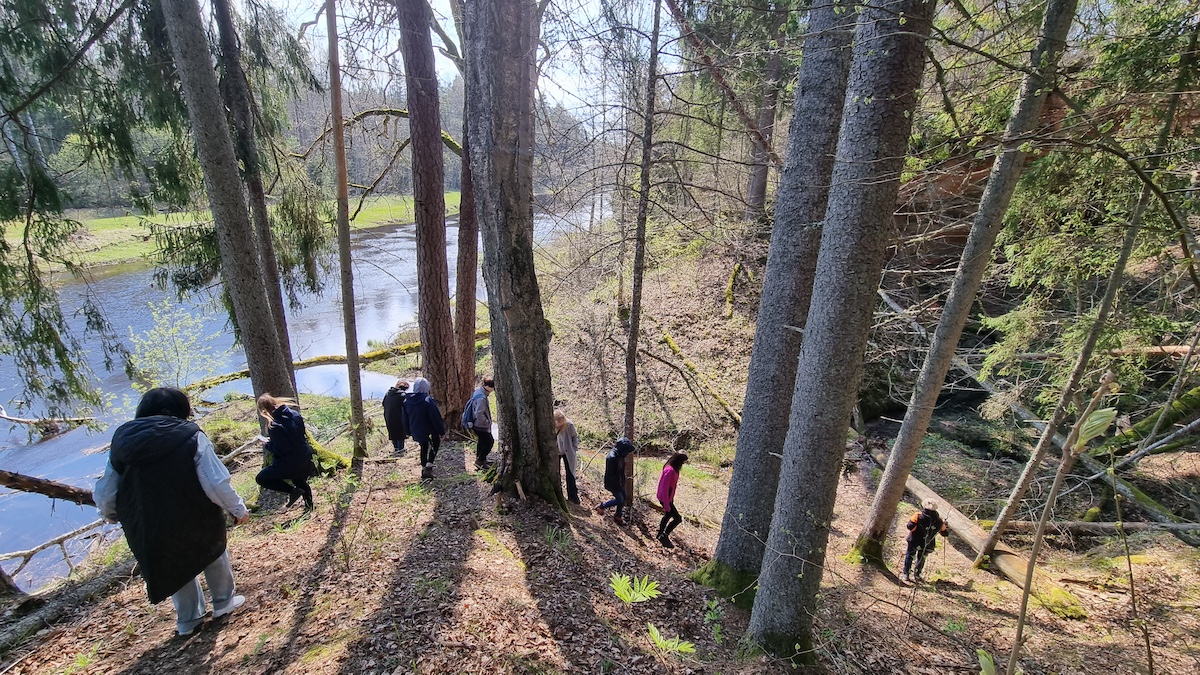
Marked on the map! Local place names in your neighbourhood
‘Marked on the map! Local place names in your neighbourhood’ is an activity organised within the context of the ECS project by the Valmiera Library in cooperation with the libraries of Mazsalaca, Rūjiena, Seda and Strenči. Their goal is to promote the active involvement of young people in place names collection — by encouraging discussions among friends or family about what the objects in the neighbourhood are called, and inviting young people to mark the places important to them on the map. This ongoing project works with teenagers to help them understand the importance of preserving every generation’s place names, learn more about citizen science, and their active role in local communities. The initiative invites seniors and older generations to share stories about the different places, and the collection of place names is done by librarians and teenagers.
On April 13, a storytelling event ‘Every place has a name’ was organised in the Valmiera Library inviting people to share their stories about places in Valmiera or Valmiera region. In this event, a space was created for open communication, memory and knowledge sharing to strengthen people’s sense of belonging. The event targeted teenagers and the older generation, to allow for sharing of knowledge and local history between the generations. Throughout the event, names of local places were collected for a database by the senior citizens. This event constitutes a citizen science initiative because people will be participating in data collection as citizen scientists to provide data for further research about place names. A second edition of ‘Every place has a name’ was organised on June 27.
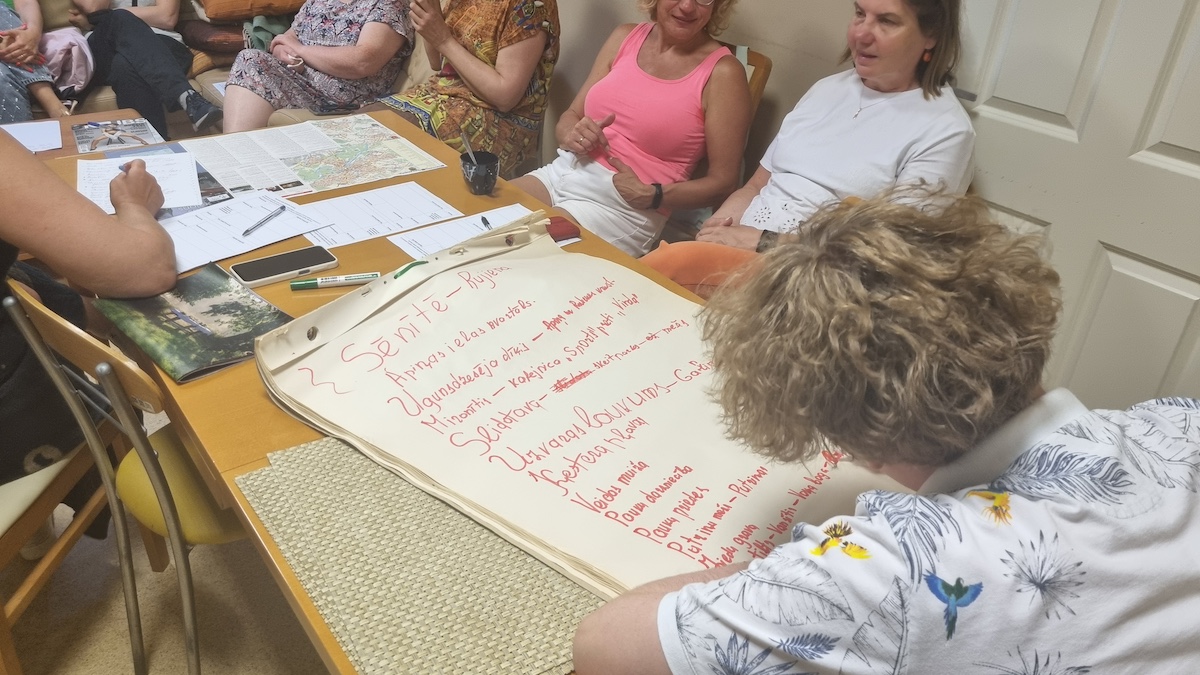
On May 9, 2024 (Europe Day), teenagers from several towns in the Valmiera region met online to explore citizen science concepts and find out how their participation in collecting place names can help scientists to obtain valuable material. During the online event, Sanita Reinsone, PhD, the leading researcher of the Institute of Literature, Folklore and Art of the University of Latvia, and one of 28 Citizen Science Ambassadors in Europe, took participants on a virtual tour of ideas and citizen science project examples. Valmiera Library explained why they were collecting place names, and the teenagers already began making a list of names used to point out specific places in Mazsalaca, Seda, Strenči and Valmiera.
Following this first meeting, the young people who attended will continue working on the project, gathering additional information and creating presentations to tell the stories of the places they frequent in their town. A second class on the use of artificial intelligence tools for visualisation of ideas was organised in June 2024.
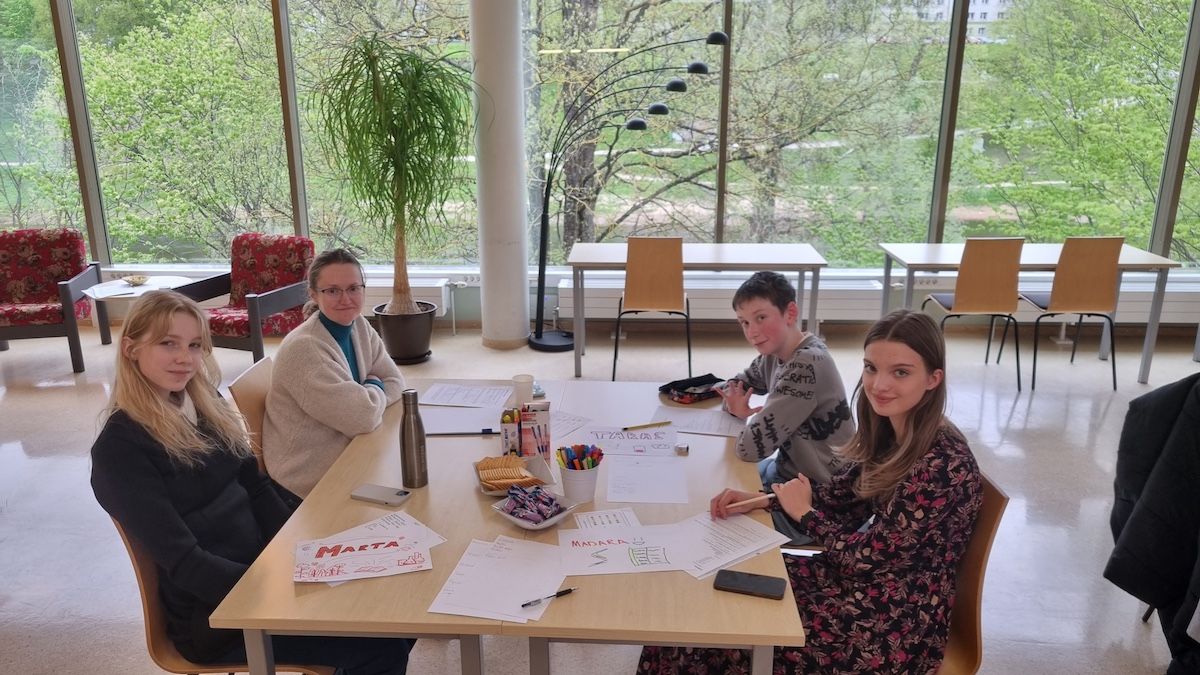
The second meeting took place on June 19, 2024 in the Valmiera Library. During this rainy afternoon, teenagers from three towns — Valmiera, Strenči and Mazsalaca — met to continue their work on the citizen science project. Participants went on a short tour around Valmiera, learned about Artificial Intelligence tools, and how they interpret local place names. AI trainer and social scientist Evija Mirķe, PhD showed participants how to use ChatGPT, Gemini, Perplexity and other tools in a responsible way. It was very fun and interesting for teenagers to see how AI tools generate completely new information that is far from the truth. In this instance, place names are a good topic to focus on when it comes to AI, because these local name places cannot be found on the internet. This provides an opportunity to teach young people to be careful when asking AI about local places, as the information will most likely be wrong and not trustworthy.
The group also discussed the issues of Latvian language and AI, since a lot of information obtained is a translation and not original Latvian text. To grasp these challenges, participants were asked to make poems including local place names. To no one’s surprise, the poems did not make much sense, which was also very entertaining! This second event was a part of an ongoing project with teenagers where they are learning about the importance of preserving every generation’s place names, citizen science and their active role in local communities.
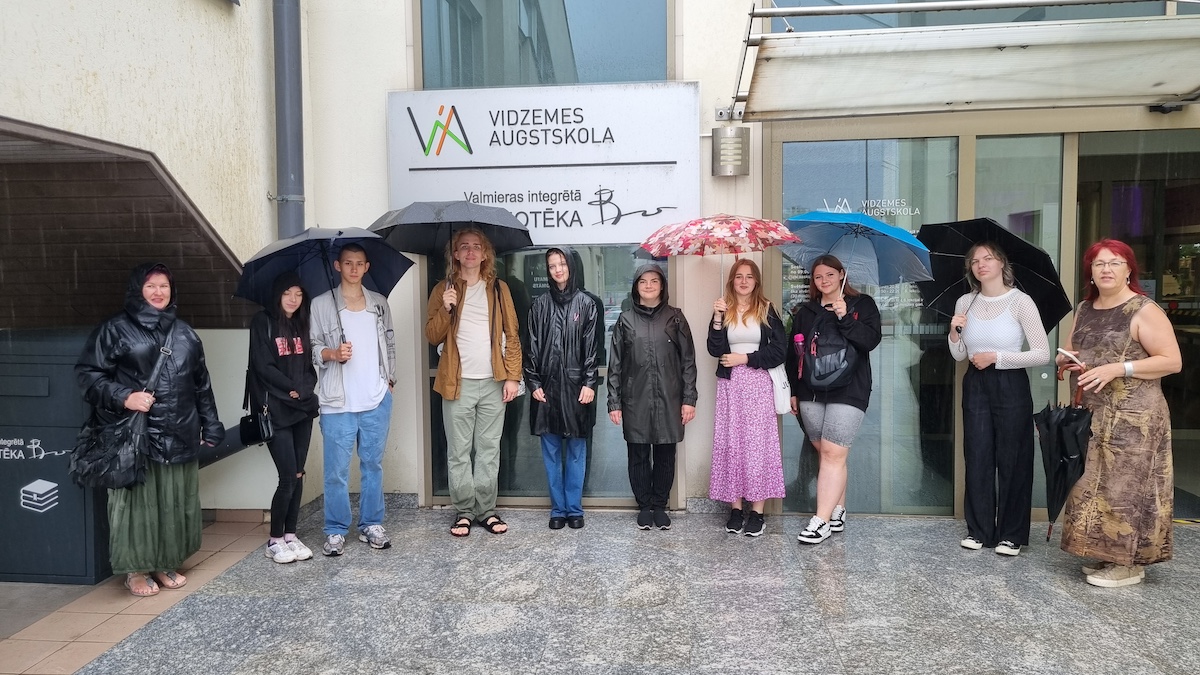
Green afternoon
On a hot afternoon on May 28, 2024, a group of teenagers attended a citizen science workshop at the Valmiera Library with Inta Soma, Head of Nature Centre at North Vidzeme Biosphere Reserve. In this workshop, Inta explained the importance of watching nature and collecting data that help scientists do their work. During the workshop, students went outside to explore the nearby flowers, plants, and trees. They used different resources to name specific plants, measured trees and filled out data sheets. Through this interactive activity, students gained knowledge about citizen science, how they can participate, and interesting ongoing projects happening in Latvia.
Next year, the students will take part in a school project. During the workshop, they were encouraged to focus their project on citizen science – by either focusing on birds, plants, or researching nearby rivers. In addition, the students were introduced to the resources offered by the library on natural sciences, in order to help them find the information they need to launch their project.
The workshop received positive feedback, with one student writing “I like it when I can explore nature and learn more about it”, and another added “If it wasn’t so hot, I would love to explore more!”.
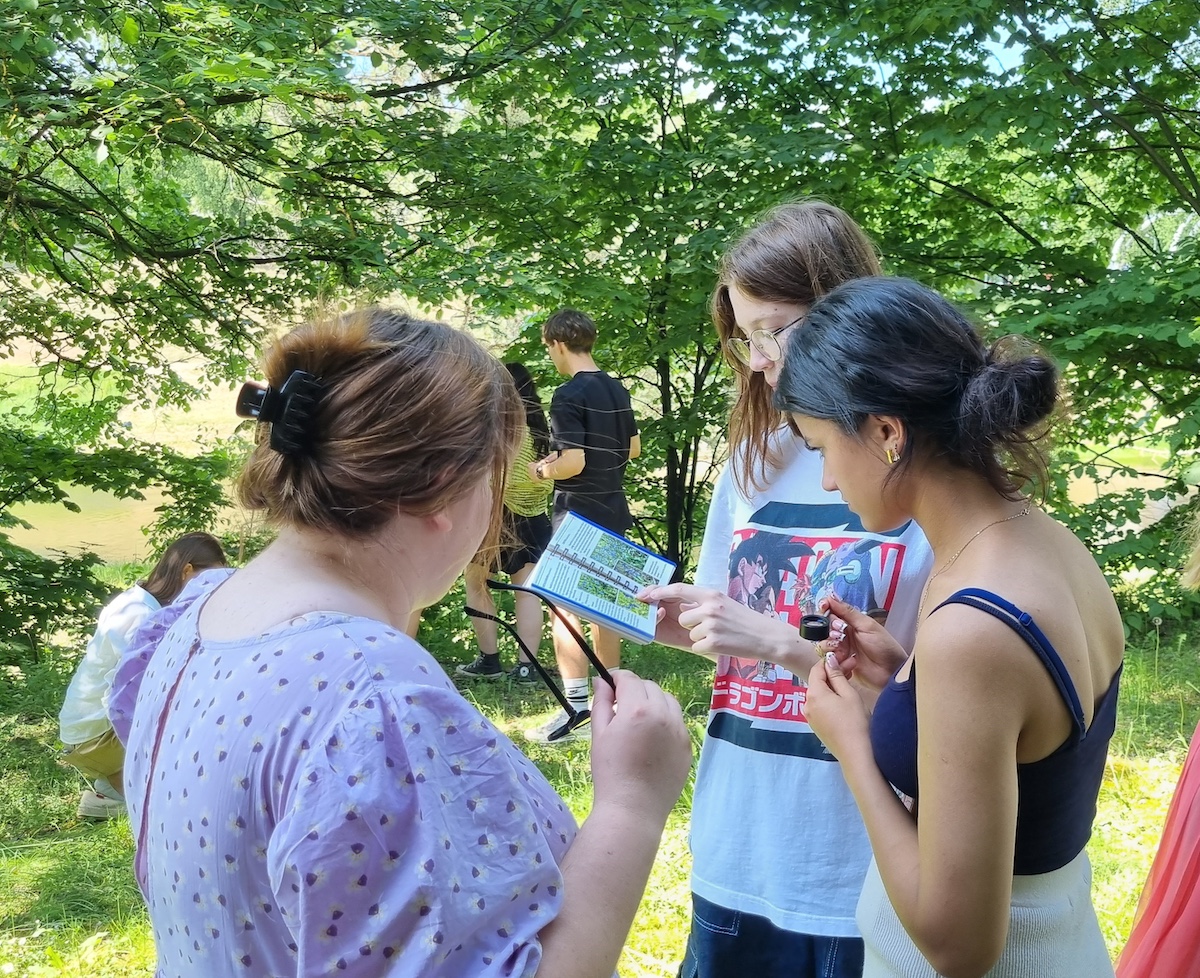
Why are you participating in the ECS project?
“Citizen science is another way to help people feel accepted, useful and a part of a larger community. We are excited to show people another way to connect, share and build a sense of belonging. Let's be citizens of the country, Europe and the world!”, says Alīna Pūce, Head of Adult Services at the Valmiera Library
More information
This article was written in collaboration with Alīna Pūce, Head of Adult Services at the Valmiera Library. Contact: [alina.puce@vb.valmierasnovads.lv].
Follow the Valmiera Library on Instagram, Facebook, and YouTube.
Photographs courtesy of Alīna Pūce.